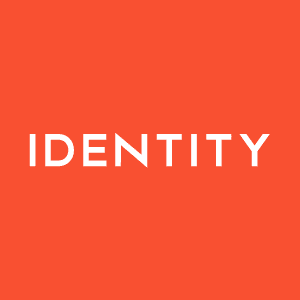The Importance of Great Communication In Client Relationships
Great communication in client relationships is an important aspect of your career to establish early on. It’s key at all stages of working together from the initial introduction meeting to completing your first project, month or year together.
Great communication can increase your popularity with clients, improve how trustworthy your clients see you and can make tricky situations easier to resolve. The following four tips highlight the most important points for successful client communication.
1. Transparency
Being transparent in appropriate aspects of your role can create a stronger and more profitable client relationship. Your client will be looking to work with an accurate and honest company, it is therefore very important that this is included in the very nature of your work ethic.
One area in particular where this plays a huge part is costing. In order for a healthy client relationship you must be upfront and clear about your costs. Being transparent in your invoicing is one way to overcome client uncertainty.
It is also good practice to be transparent in the way you work, the more you explain processes, share information and provide regular updates to the client, the more understanding and patient they will be. Another area in which to be transparent in is error. Proceeding quickly to communicate and correct a mistake, and then taking the steps to limit it from reoccurring will please your client. It’s also good practice to keep your client in-the-know about your products and services, should anything change which is likely to benefit or affect them.

2. Trustworthiness
It is obvious that the more you are in regular contact with your client, the stronger their trust will be in you. If your client recognises that they can contact you and get a quick response, it will help them to develop trust and respect in you. It’s important to remain accessible to your client, if they have to go through multiple amounts of people just to get you on the phone, this will not sit well. Communicate to your client your availability so that they understand when they can get hold of you. This will instill confidence in the client that you are aware of their needs and will also reinforce respect for your time.
3. Understanding/Empathising
The more conversations you can have with your clients the better – it will allow you to have a stronger understanding of their expectations and requirements. Communication is only successful when both the sender and receiver are clear in correspondence, so take time to ensure that your message is conveyed effectively. Ensure your conversations are clear, explaining any terminology your clients may be unfamiliar with and round-up your conversations with the actions to take away to avoid overwhelming them or cause a communication breakdown and instead building a friendly, positive and well-informed communicative relationship.
When issues arise on either side it’s easy for individuals to bury their heads in the sand. Human error, issues with suppliers etc. is inevitably going to happen and this is when great communication and understanding is paramount. By raising issues to your client early on, it alleviates last minute pressure and gives you time to work on a contingency plan together. The best way to resolve an issue and restore healthy communications is verbally with the client. By clearly explaining the problem in a way in which your client will understand, will allow them to digest and come back to you in a more empathetic manner. Regularly scheduled meetings are great to prevent any miscommunications between the two.
Understanding goes hand-in-hand with empathising. If you pay close attention to your client and often place yourself in their shoes, you are well on your way to practicing empathy. It could be deemed as one of the most important communication skills to master, everyone likes to be understood and listened to and to feel as though their needs and wants are identified.

4. Friendship
Overall your relationship with your client should remain professional but you may find yourself learning a lot about this person/people. If you can make a bond with your client, this is great – it will make your working day pleasant and communications easy. Just by working with your client, you’ll pick up on ways in which they like to work and vice versa, which is great for forming a strong working relationship. This can only come from communicating regularly and being personable.
Summary
As you can see, there are many reasons to really work and focus on your client communications. By listening, being proactive and personable, you are sure to be on your way to a successful relationship. The only way to improve is to practice, practice, practice and your communication skills will naturally develop along the way.
Our teams are here to ensure that you have the best possible experience with Identity. If you would like to book a meeting or arrange an account review, please feel free to contact us either by phone on 01323 469111 or email letstalk@identitygroup.co.uk.








